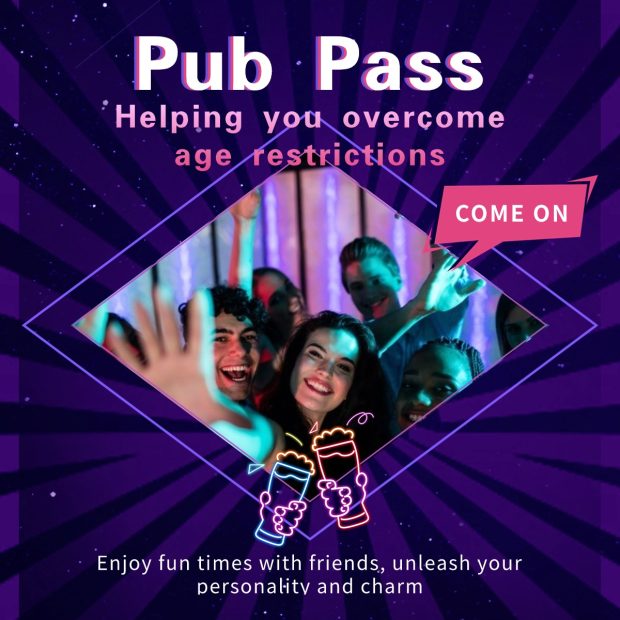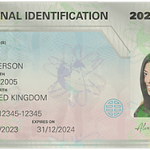Understanding Real ID
The Real ID is a significant form of identification in many regions. It is designed to enhance security and meet specific federal standards. Unlike regular identification cards, a Real ID has additional security features that make it more difficult to counterfeit. These features can include advanced holograms, unique barcodes, and other tamper – evident elements. This type of identification is often required for certain activities such as boarding domestic flights within the country, entering certain federal buildings, and accessing secure federal facilities.
For the general public, the process of obtaining a Real ID involves meeting specific documentation requirements. This typically includes providing proof of identity, such as a birth certificate or passport, proof of social security number, and proof of residency. However, the process becomes more nuanced when it comes to individuals with a diplomatic status.
Diplomatic Status and Its Implications
Individuals with diplomatic status enjoy certain privileges and immunities under international law. These are designed to ensure the smooth and unhindered performance of their diplomatic duties. Diplomatic personnel, such as ambassadors, consuls, and their families, are often granted special treatment in many aspects of life in the host country, including in the area of identification and documentation.

Diplomatic status is usually based on the accreditation of an individual by their home country to the host country. The host country recognizes the diplomatic representative’s role and the need to facilitate their work. This recognition extends to various administrative and legal procedures, including the application for identification documents like the Real ID.
The Process of Applying for a Real ID with a Diplomatic Status
- Initial Consultation: The first step for a diplomat or a person with diplomatic status is to consult with the relevant embassy or consulate of their home country in the host country. The embassy or consulate will be able to provide guidance on the local requirements for obtaining a Real ID as a person with diplomatic status. They may also be able to offer assistance in translating any necessary documents or communicating with the local authorities.
- Documentation Preparation: Although the requirements may be different from those for regular citizens, certain basic documents are still usually required. This may include a valid diplomatic passport, which serves as proof of identity and diplomatic status. In addition, the diplomat may need to provide a letter from the embassy or consulate confirming their status and their official duties in the host country. Proof of residency in the host country may also be required, which could be in the form of a lease agreement for their official residence or a letter from the embassy stating their residential address.
- Contacting the Local DMV or Identification Authority: Once the necessary documents are prepared, the diplomat should contact the local Department of Motor Vehicles (DMV) or the relevant identification – issuing authority. It is important to inform the authority of their diplomatic status at the beginning of the communication. The local authority may have a specific process or department dedicated to handling applications from individuals with diplomatic status.
- Application Submission: The diplomat will need to complete the Real ID application form, which can usually be obtained from the local DMV or identification authority. Along with the form, they must submit all the required documents. The application may require the diplomat to provide personal information such as their full name, date of birth, and contact details. In some cases, they may also be required to provide a digital photograph and fingerprints, although the latter may be subject to certain diplomatic immunities and exemptions.
- Review and Processing: The local authority will review the application and the submitted documents. They will verify the authenticity of the documents and ensure that the applicant meets the requirements for a Real ID with a diplomatic status. This process may take some time, as the authority may need to coordinate with the embassy or consulate for additional verification if necessary.
- Collection of the Real ID: Once the application is approved, the diplomat will be notified by the local authority. They will then be able to collect their Real ID from the designated location. In some cases, the ID may be mailed to the diplomat’s official address, but this will depend on the local procedures and the preferences of the individual.
Common Problems and Solutions
- Language Barriers: Many diplomats may not be fluent in the local language of the host country. This can pose a problem during the application process, as they may have difficulty understanding the instructions on the application form or communicating with the local authorities. Solution: The embassy or consulate can provide translation services. They can also assign a staff member who is fluent in both the diplomat’s language and the local language to accompany the diplomat during the application process. Additionally, some local DMVs may have multilingual staff or provide translated application forms.
- Documentation Requirements Confusion: The documentation requirements for a Real ID with a diplomatic status can be complex and may vary from one region to another. Diplomats may be unsure about what specific documents are needed or how to obtain them. Solution: The embassy or consulate should provide clear and detailed information about the required documents. They can also assist in obtaining any necessary documents from the home country, such as a copy of the diplomat’s appointment letter. Regular communication between the diplomat, the embassy, and the local DMV can also help clarify any confusion.
- Immunity – Related Issues: Some aspects of the Real ID application process, such as fingerprinting, may conflict with the diplomat’s immunities. There may be disagreements between the local authority and the diplomat regarding these requirements. Solution: The embassy or consulate should engage in diplomatic negotiations with the local government to find a mutually acceptable solution. This could involve alternative forms of identification or security measures that respect the diplomat’s immunities while still meeting the security requirements of the Real ID.
- Long Processing Times: Due to the need for additional verification and coordination with the embassy or consulate, the processing time for a Real ID application with a diplomatic status may be longer than for a regular application. This can be inconvenient for diplomats who need the ID for urgent travel or official duties. Solution: Diplomats should apply for the Real ID well in advance of when they need it. The embassy or consulate can also follow up with the local authority to expedite the process if there is a legitimate need, such as an upcoming official visit or a diplomatic mission.
- Changes in Regulations: The regulations regarding Real ID applications, especially for individuals with diplomatic status, may change over time. Diplomats may not be aware of these changes and could face difficulties during the application process. Solution: The embassy or consulate should stay updated on any changes in the local regulations and inform their diplomatic staff promptly. They can also organize training sessions or information briefings for diplomats on the updated application process.
Fake ID Pricing
unit price: $109
| Order Quantity | Price Per Card |
|---|---|
| 2-3 | $89 |
| 4-9 | $69 |
| 10+ | $66 |


